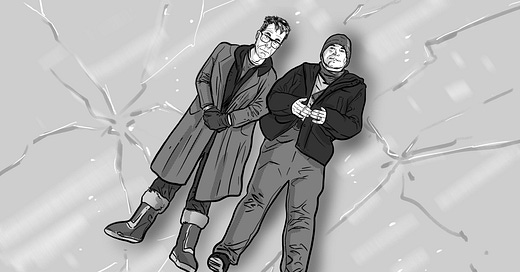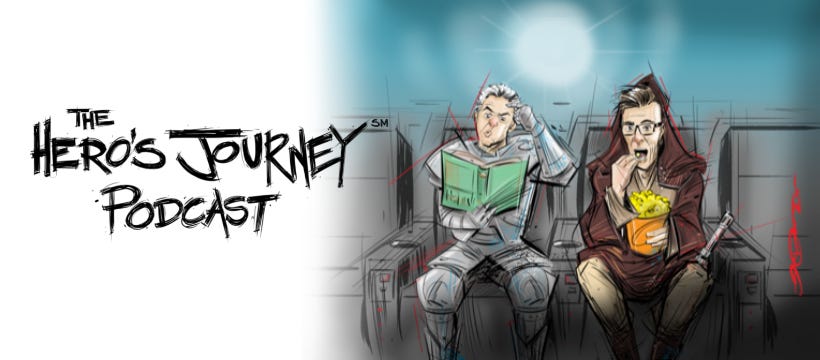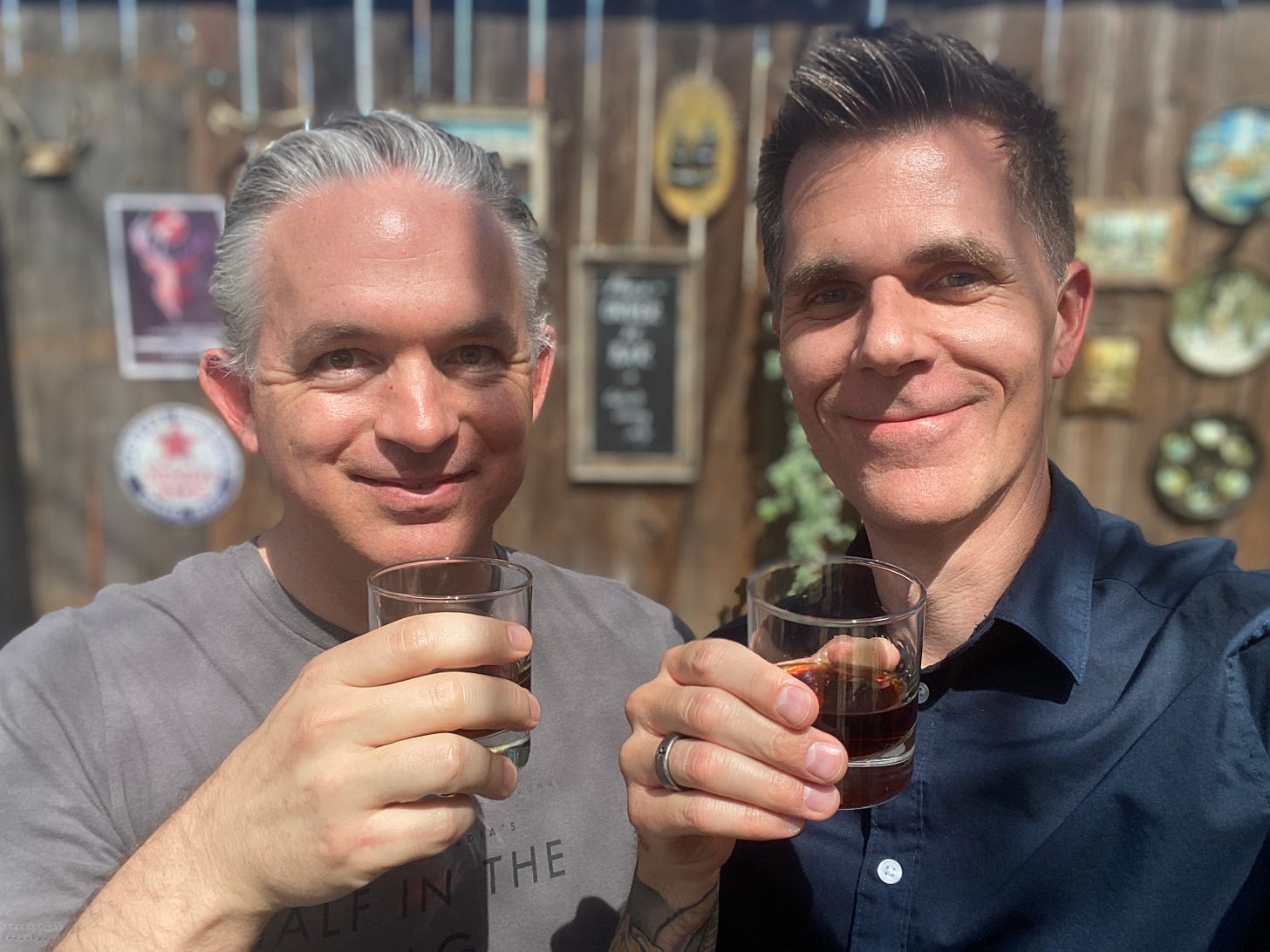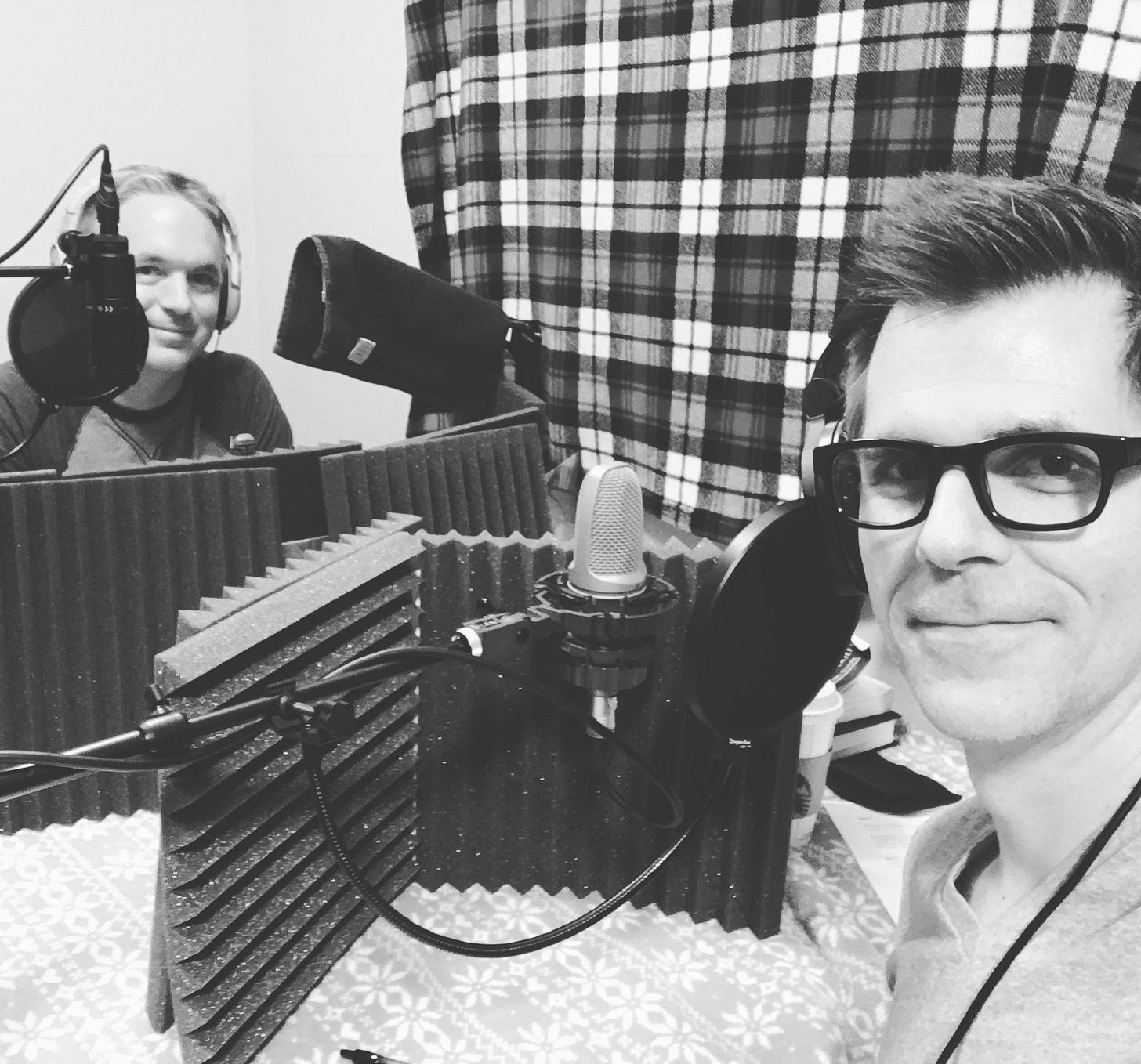Today, after seven and a half years of production, my partner Dan and I released the final episode of The Hero's Journey℠ Podcast
It has been an emotional month wrapping up a project that lasted the better part of a decade—but we both knew it was time. Endings are hard, though—and apparently, I still have some reckoning to do, or I wouldn’t be writing this.
My debut novel, Symptoms of Being Human, came out in February of 2016. It was a turning point for me and my creative life, and the high that followed lasted nearly a year—book signings, speaking appearances, book conference invitations—but then it tapered off, and I was once more relegated to four walls, my thoughts, and a keyboard.
To a man who grew up thriving on applause, this was a hard crash. I'd spent my life in front of an audience, first on stage, then on screen, then on tour with my band, 7k. After five years of writing in the dark, finding that spotlight again triggered a rush of serotonin and dopamine the likes of which my brain hadn’t experienced in more than half a decade. And when the comedown came down, it was brutal.
So, I sought to fill that void. I joined a popular 80s cover band and began playing several times each month. It scratched my performing itch—but since I was playing other artists’ songs, it left the creative part of me dry. I craved something more. A creative outlet that married writing and performance.
This craving became the seed of The Hero's Journey℠ Podcast.
My favorite podcast at the time was The West Wing Weekly, a buddy-style show hosted by Hrishikesh Hirway and Josh Malina. It was casual and funny and centered around the friendship of the two hosts. And since it followed The West Wing TV show episode by episode, it had a coherent and repeating structure that imbued it with a life and familiarity that kept me coming back each week. Wanting to emulate this formula, I wracked my brain for an idea. And then it came to me.
I had wanted to read Joseph Campbell’s seminal work, The Hero with A Thousand Faces ever since I’d attended Chapman University Film School, where I’d read Christopher Vogler’s modern, cinema-focused adaptation, The Writer’s Journey. I knew of one other person who had read and enjoyed Vogler: my lifelong friend, Dan.
At the time, Dan was deeply averse to attention, preferring to work behind the scenes, or at the very least not on the business end of a microphone. So, I knew it would take some cajoling—but after a few beers and a hard sell, he reluctantly agreed to read Campbell and see what we could make of it.
A few months later, we started production—and from the first episode, I knew we had something special. Our passion for storytelling and the depth and humor of our friendship was palpable. We were making a show we wanted but had been unable to find.
It was a lot of work; 20-40 hours per month of watching and rewatching a film, writing out the analysis, researching the details, scripting the intros and outros, then getting together to record. And then there was post-production, which made up more than half the work.
At first, we enjoyed every part of the process. And, as the audience grew, the work became even more gratifying. At some point, we reached 1000 monthly downloads and $500/month in patron contributions. According to Riverside.fm, only 10% of podcasts make it past the first episode. Of the 4.4 million currently active, only the top 50% get more than 30 downloads the first week after release. I’m no good at statistics, but by all measures, The Hero's Journey℠ Podcast was a success.
At some point, though, we hit a plateau, where we stayed for several years. Despite constantly upgrading and improving the show, we seemed to have reached saturation. We considered changing the format—moving to YouTube, making short form video content, taking on guests, hiring a social media strategist, you name it. In the end, though, neither of us wanted to do those things. They didn’t inspire or excite us. So, we kept doing our thing, hoping to reach some kind of word-of-mouth critical mass, at which point the show would explode.
But it didn’t happen.
And then Dan and I both experienced some important personal and professional turning points, and we decided it was time to let go and rededicate our energy to new endeavors.
Putting a creative project to rest is never easy. I’ve endured ending my two-decade acting career, breaking up my band after ten years, and abandoning multiple novel manuscripts, two of them after four complete drafts. When you’ve put so much work into something—sometimes daily toil over a period of years—it's hard to let go. Our egos get loud, our emotions run high, and the sunk cost fallacy sinks its fangs into our psyche.
It takes a great act of strength to let go—perhaps as much strength as it takes to start something new in the first place. The thought of saying farewell to our podcast was so daunting that Dan and I considered simply putting the podcast on indefinite hiatus.
But taking a hiatus requires holding on—and holding on means holding still. Holding on requires grip strength that might be better applied to reaching for new projects. Holding on consumes creative and emotional bandwidth that ought to be used not for hovering, but for flying.
Heroes don’t hold on.
Today, my heart is heavy. I will miss many things about the podcast, but mostly I will miss spending one day a month laughing and sharing a drink with my friend. Yet even through the haze of loss and mourning, I see the sparkle of something unknown on the horizon. Some new adventure, urging me to step once more into the Special World of creativity.
I think I’ll answer that call.








Love hearing your thoughts. When one door closes, another opens!
If you were happy every day of your life you wouldn’t be a human being. You’d be a game-show host. <3